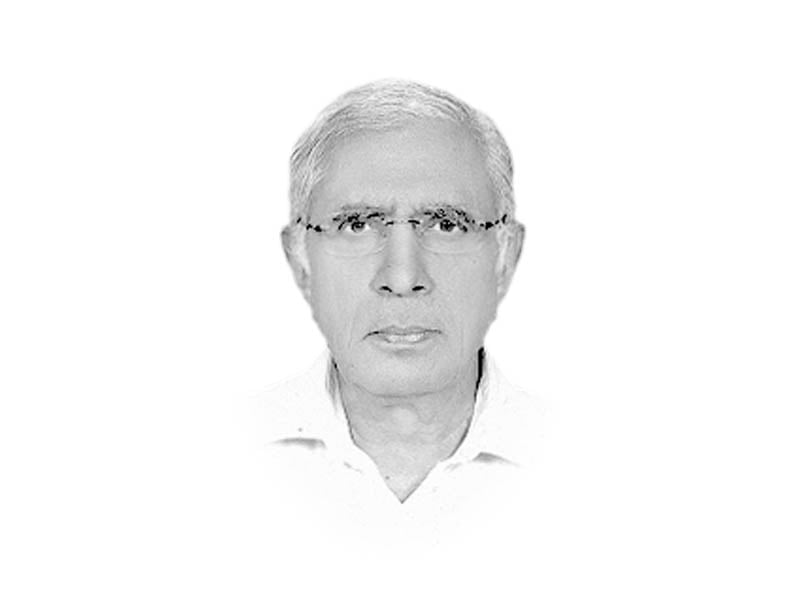
The late Ghulam Ishaq Khan, the super-duper civil servant of the 1980s, was known for his financial honesty but not for his intellectual integrity. That he had a very low economic IQ would certainly be affirmed by many. He had almost closed down the Karachi export processing zone right at a time when China was opening up Shenzhen! Despite being a financially honest man, by the time he left Wapda, the Authority had become infested with corruption to the core. The generals that followed him in the Authority milked it so dry that by the late 1980s, no multilateral aid agency was prepared to fund its power projects.
The rot in the civil service had started setting in by the time Mr Khan was elevated to the position of president. Exceptions to the rule notwithstanding, the civil service presently attracts only those who wish to make a bundle on the side. Most make money by selling to interested parties, strategic information about our national endeavours. And I don’t think anybody would controvert the claim that most of the ‘lucrative’ thanas in the country, especially in the urban areas, are auctioned among police officers. In the rural areas, it is the thaneydar who rules through the terror of his uniform and extorts protection money from both the poor and the rich. The intelligence agencies keep files full of innovative and invented skeletons of politicians and use the information for blackmailing purposes or to plant them on the gullible media, when and if their masters want to malign any politician or a group of politicians. The less said about the declining professionalism in the armed forces the better.
So, that is the kind of instruments of governance that the successive governments in this country have been burdened with since at least the mid-1980s. And that perhaps, is the biggest reason behind what is termed as bad governance, especially during the last 59 months. This is not to say that the politicians who ruled the country during this period were all innocent. But let us not miss the forest because of the trees.
Even to hold free, fair and impartial elections, we need to have clean civil servants manning the Election Commission of Pakistan (ECP). Otherwise, those who are today serving as instruments of governance in the ECP would only do what they have been doing all these years — rig elections and manipulate their results to help saddle those who paid them the most. It is officers of this type who create controversies where there should have been none. The pre-requisite of a degree is no more there for the coming elections. These officers were also aware of how the Supreme Court had acted in the case of Mr Jamshed Dasti, who after having been found out to have submitted a fake degree to contest the 2008 polls, was allowed after he had resigned from his seat, by both the SC and the ECP, to contest the by-polls. Still, the man who wrote the letter to so many parliamentarians, including the leader of the opposition, in a highly provocative language, one feels, simply wanted to entangle the chief election commissioner in an unnecessary controversy.
Published in The Express Tribune, February 27th, 2013.
COMMENTS (9)
Comments are moderated and generally will be posted if they are on-topic and not abusive.
For more information, please see our Comments FAQ












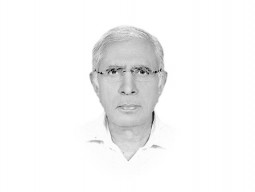

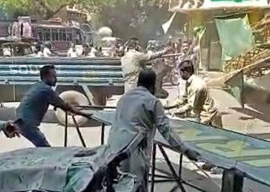
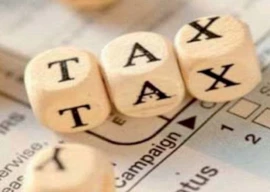
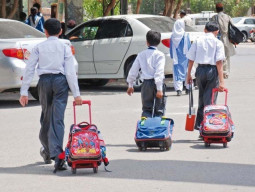

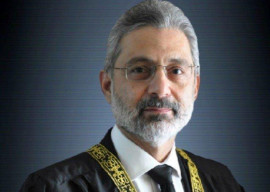
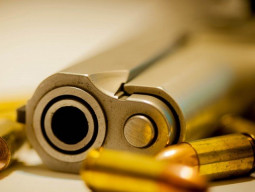







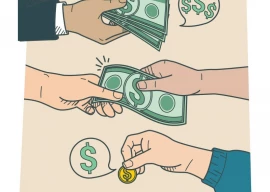



1714129906-0/Clint-Eastwood-(1)1714129906-0-270x192.webp)






@John the Baptist: The politicians are not being favored rather their accomplice are also being exposed.
A Peshawary
What about the corruption by the Judiciary the main accomplice of Generals and Secretaries at higher levels and Thanedar and Patwarreis at lower level. The brokers; the hidden hand (yet highly visible) is the most important factor and main stakeholders in this process.
It starts from the bogus Gawah in the lower courts and reaches to a level; a man with black glasses, latest communication devise in his hand and Nishastedar Cotton Suit sitting in the chambers of Secretaries to SOs and head clerks in secretariats or GHQs and in judges Chambers. What are their late evening duties evenings it is an open secret not worth mentioning here (the expert opinion can be sort from Shaikh Rashid)
How can one expect good governance in these circumstances (Iss Hamam mai sub nungai hain)
A Peshawary
Ziauddin has yet again hit the nail on the head. No minister can move a dirty file without the help of the go-getters in the civil service.
Our establishment is most innocent in the world. They are like innocent children rather angels.
Your last paragraph says it all. It is this hatred toward the popularly elected leaders and the De-legitimization of their election (in case of Dasti twice in a row) is responsible for the failure of democracy in Pakistan. Everybody knows the condition of a degree was unconstitutional and illegally imposed by dictator to limit participation in the elections. The SC had rejected that condition a few years ago, yet the current EC officials are still insisting of submission of degrees and being offensive in their demands. On one hand some support the SC when it goes against the elected govt and leaders on the other when it is fair and protects the constitution the same people do not care about SC decision and still insist on Gen Mush's law not Pakistani constitution verified by the SC once again.
The real culprits who play a lead role in corruption are civil bureaucrats. Just have a look at their assets, the likes of Salman Siddique, Kamran Lashari, Shahid Rafi, capt Naseer, Salman Faruqi etc and few of these politicians would seem small fry in comparison.
Please add your name to the ballast that has been weighing the ship of the nation down. It is brain conditioning like yours which favours politicians as angels of god who should not be "bothered" by "small" details such as truth and honesty that has destroyed the ability to see the trees from the forests. Welcome to the club and I am sorry to be the one to have popped your balloon of self righteousness. Please, for the sake of our country, ditch these decaying habits and join the 21st century. Despite your innate fears, you may enjoy the breath of fresh air!
I would love to see more details on this one..."Most make money by selling to interested parties, strategic information about our national endeavours"